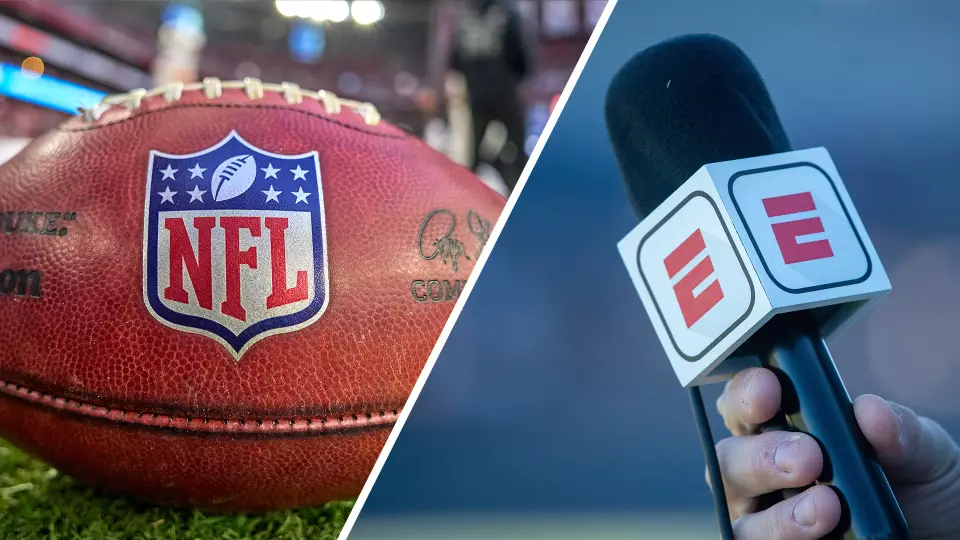The sports media realm is on the cusp of a seismic shift, driven by ESPN’s audacious move to acquire key NFL media rights and assets, including the iconic NFL Network and the popular RedZone channel. This strategic maneuver is not merely about expanding ESPN’s portfolio; it signals a deliberate push to redefine how fans consume football content in the digital age. By integrating NFL properties into its ecosystem, ESPN is positioning itself as the ultimate hub for football aficionados, aligning its media empire with the NFL’s expansive universe.
This deal is a testament to ESPN’s recognition that traditional broadcast methods cannot sustain growth in an increasingly on-demand, app-centric world. The incorporation of NFL’s linear rights, digital assets, and its beloved RedZone channel leverages ESPN’s already formidable reach, transforming it into the premier destination for real-time football action. The focus is no longer solely on TV ratings but on creating a seamless, multi-platform experience that caters to modern sports fans’ diverse viewing preferences.
Reimagining Fan Interaction and Content Delivery
One of the most revolutionary aspects of this deal is ESPN’s integration of the NFL’s fantasy football product into its own platform, rebranding it as ESPN Fantasy Football. This move reflects a broader industry trend—the convergence of fantasy sports, real-time game coverage, and digital innovation to deepen fan engagement. By making ESPN Fantasy Football the official NFL fantasy game, ESPN aims to foster a more interactive and personal connection with fans, turning passive viewers into active participants.
Furthermore, the expansion of NFL game licenses, with an additional three games per season, demonstrates ESPN’s ambition to dominate the football viewing landscape. With 28 games now under ESPN’s umbrella, more fans will have access to their favorite teams through both linear TV and ESPN’s upcoming direct-to-consumer streaming service. This shift signifies a strategic move to break free from the traditional pay-TV model, inching closer to the future where digital streaming is the primary conduit for live sports.
The NHL’s RedZone channel, owned and controlled by ESPN but backed by NFL rights, embodies this vision of dynamic, fan-centric coverage. By retaining control over the brand and licensing rights for distribution, ESPN ensures that RedZone remains a cornerstone of adrenaline-filled football viewing, capturing the excitement of every moment on game days. Meanwhile, the NFL maintains ownership of its digital distribution rights, creating a symbiotic partnership that leverages each entity’s strengths.
Implications for the Broader Sports Media Ecosystem
This acquisition does not only elevate ESPN’s stature but also disrupts the fragmented sports media ecosystem. As the NFL Network continues to operate with ESPN at the helm, the traditional boundaries separating linear and digital media are blurred. The league’s assets will be more accessible, integrated, and innovative, marking a paradigm shift toward a more holistic broadcasting approach.
The move also signifies a subtle shift in power dynamics; ESPN’s leverage increases as it gains control over key NFL content, enabling it to craft tailored experiences and exclusive content. The implications extend beyond just viewing figures—this is about shaping the cultural narrative of football for decades to come. By owning and operating more of the NFL’s media assets, ESPN positions itself as a relentless innovator, capable of experimenting with new formats, personalized content, and interactive features that can redefine fan loyalty.
Moreover, this strategic alignment with the NFL showcases Disney’s larger vision of building a comprehensive streaming ecosystem that rivals tech giants and other streaming services. ESPN’s upcoming direct-to-consumer platform is poised to become the digital home base for football lovers, combining live games, original programming, fantasy sports, and on-demand content—all curated under one brand.
In essence, ESPN’s bold acquisition underscores a broader industry truth: in the world of sports media, adaptability and innovation are paramount. The future belongs to those who can seamlessly integrate traditional broadcasting with cutting-edge digital platforms, and ESPN’s latest move exemplifies that philosophy, promising an exciting evolution for football fans worldwide.


Leave a Reply